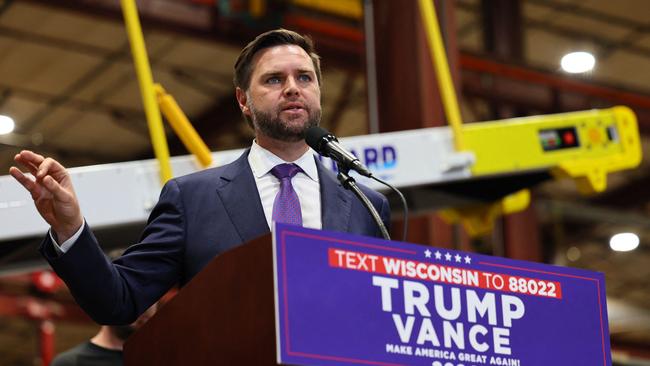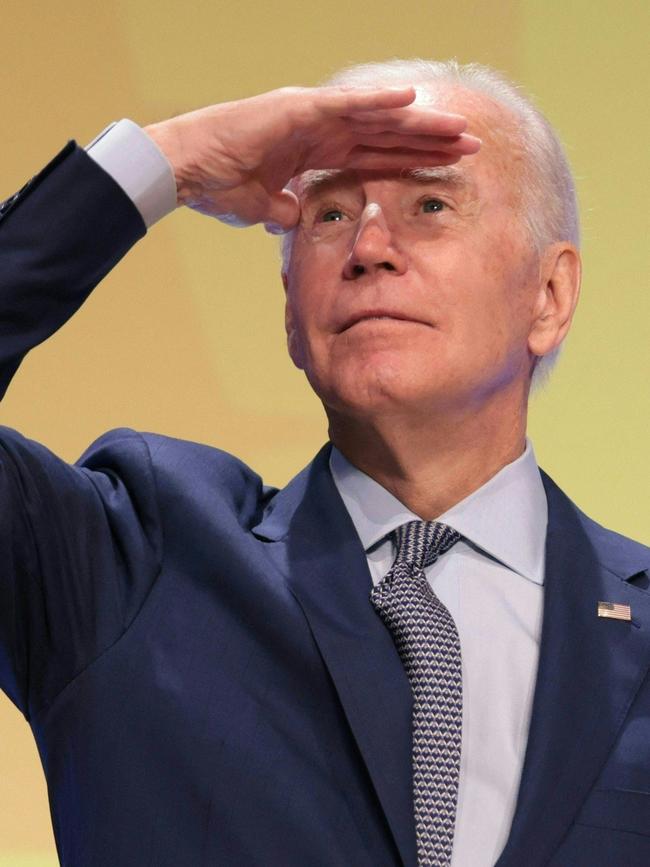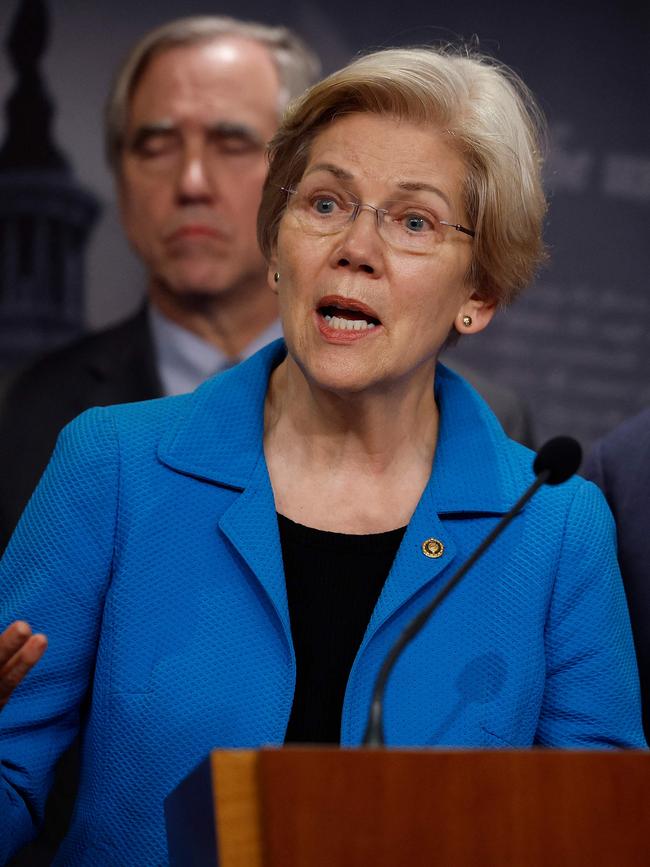
Second, Trump chose to turn his head at just the right moment to miss, by centimetres, a would-be assassin’s bullet; he suddenly (and prematurely, see decision 1) became the inevitable winner in November.
Third, he chose JD Vance as his running mate. He needed a centrist, ideally a governor, to win over the swinging independent voters who hold the key to the White House. Kamala Harris gets this electoral logic. She picked Tim Walz, the Minnesota governor, a progressive who has won over red parts of his state. Instead, Trump went for a bearded 39-year-old, with a thin executive CV, who leftists will demonise as a woman-hating (and cat-hating) far-right “weirdo”. (Vance has insisted he has nothing against cats.)
I think this third decision, assuming he sticks with it, in the short term, will cost Trump the election. But it will reframe the nature of conservative politics for a generation. And it is for that legacy we will remember Donald Trump, whether he wins or loses on November 5. His remaking of the Republican Party will be how he is written about in 100 years.
No Republican since Ronald Reagan and no Democrat since Franklin Roosevelt has had a deeper and almost certainly lasting impact on their party. Picking Vance, regardless of the electoral outcome, shows us how, in at least three crucial ways, the right has been transformed.
First, on the economy. Economics was what conservatives thought they had got right. They won the cold war with a superior economic system, obviously? Adapt it for the era of peace to come, right? This meant decades of free trade and the deification of globalisation. But, as George Will, the godfather of a now displaced conservatism, bemoaned “the winds of globalisation have casualties, and the Republicans did not address it”. Now they have.
Decades of free trade built up China’s industrial base and defenestrated America’s. Vance’s terrifically readable Hillbilly Elegy has become the most important book about that suicidal decline; Barack Obama’s books are snore-fests by comparison. They tell us about progressive elites and how to entrench them. Vance documents a revolution against those elites, and how to replace them.

Trump-Vance have a focus on trade protectionism and workers’ rights that was the preserve of left-wing populism. Remarkably, Vance has found allies for his war on banks from liberal Democrats such as Elizabeth Warren. Trump may have dismissed her as Pocahontas (nuance on race is not his strong suit); he has picked a running mate who agrees with her on corporate tax cuts and the minimum wage. Vance and his allies have even been chided as “pro-life socialists”.
The Vance nomination is the most enduring political legacy of the global financial crisis of 2007-08. The mortgage-stressed working class has moved into this new, larger GOP tent. According to Vance: “The old conservative movement argued if you just got government out of the way, natural forces would resolve problems. We are no longer in this situation and must take a different approach … It’s fine to take a laissez-faire approach when you are in the safety of the sunshine. But when the twilight descends and you hear the wolves, you’ve got to circle the wagons and load the muskets.”
Second, on culture. Vance’s military metaphor makes clear the second transformation he presages: the embrace of culture war. Left-wing commentators have dismissed Vance as an anti-woman, “superconservative Catholic”. The aversion to him is less that he believes in the rights of unborn children. Rather, Vance is prepared to fight the left on a cultural battlefield – reproductive rights – they assumed they had captured in perpetuity.
The Republican establishment fought shy on abortion. Ronald Reagan, for example, was agnostic on the issue. The new counter-establishment Vance represents has changed this. Daniel Patrick Moynihan was the Democrats’ greatest intellectual politician. Like Vance, he came from a broken, working-class home. And, like Vance, he acknowledged “the central conservative truth is that it is culture, not politics, that determines the success of a society. The central liberal truth is that politics can change a culture and save it from itself”.

I’ve assessed in these pages how Christopher Rufo’s new manifesto was a conservative call to arms: fight the left in their own backyard. March back through the institutions stolen by progressives. Reclaim the language. Defy the woke. Vance is those prescriptions made flesh.
Democrats may win in November. But the next several elections will be fought on cultural terrain that Vance’s conservative movement will be much more adept at fighting on.
This will, in turn, alter the nature of the American left. This evolution in American politics is no bad thing and certainly long overdue. It won’t come via the Democratic ticket – despite its unique identity politics dynamics.
Kamala Harris represents a dreary, shopworn progressive consensus. Its failure is evident on the streets of San Francisco. Instead, systemic change will come via conservative forces. There is irony in that.
The more Vance and his compadres speak in the language of the working class left, the more Democrats will have to re-evaluate their capture by educated, middle class elites. The Democratic establishment’s greatest fear is a revitalised Republicanism (a New Right) that combines cultural conservatism with economic security.
The challenge facing the new GOP is the development of a technocratic class – men and women who can run government, rather than simply denounce it – capable of policy design and implementation. Comfortable with Big Tech, Vance sees Silicon Valley as an arena in which to devise New Right policy and foster conservative technocrats. He certainly won’t look for it in the universities. “They are the enemy,” he says.

Third, abroad. Vance will speed up America’s withdrawal from global leadership. American foreign policy has already become minimalist and squeamish. Biden ran away from Afghanistan. He is giving Ukraine enough support to not lose but not enough to win. He is making an Israeli victory over Hamas harder. This trend would almost certainly continue under any new conservative dispensation. If the GFC was the domestic sea in which Vance learned to swim, the botched occupations of Iraq and Afghanistan, contemporaneous with it, were his lens on foreign policy.
A note to the LNP: Vance is all about a revolution at home. He could care less about the prospects of conservatives abroad. PC Dutton may see in JD Vance a vision of the new Australian liberalism he wants to build: culturally unapologetic, administratively robust. I would urge on him caution. The equivalent dislocations that gave America JD Vance, and the mass movement he represents, gave us PL Hanson, and a niche, sectional populism. The depth of social decay, of economic decline, of deaths of despair, of cultural fracture were necessary for the political purchase Vance now enjoys. They have no real Australian analogue.
Because Vance won’t win Trump the centrist voters he needs, the Ohioan looks an electoral liability or at least a nullity. But in picking JD Vance, three decades his junior, Trump has, possibly inadvertently, guaranteed that the transformation of his party, and of American politics, will continue long after Trump leaves the stage.
Timothy J. Lynch is professor of American politics at the University of Melbourne.






Donald Trump has already made three decisions that will determine how history remembers him. First, he agreed to debate Joe Biden. This revealed a president in such a state of cognitive decline that his party forced him to step aside; beating his replacement, Kamala Harris, will be much harder. He’s thus far proving not very good at it. Was this the Democratic plan all along?